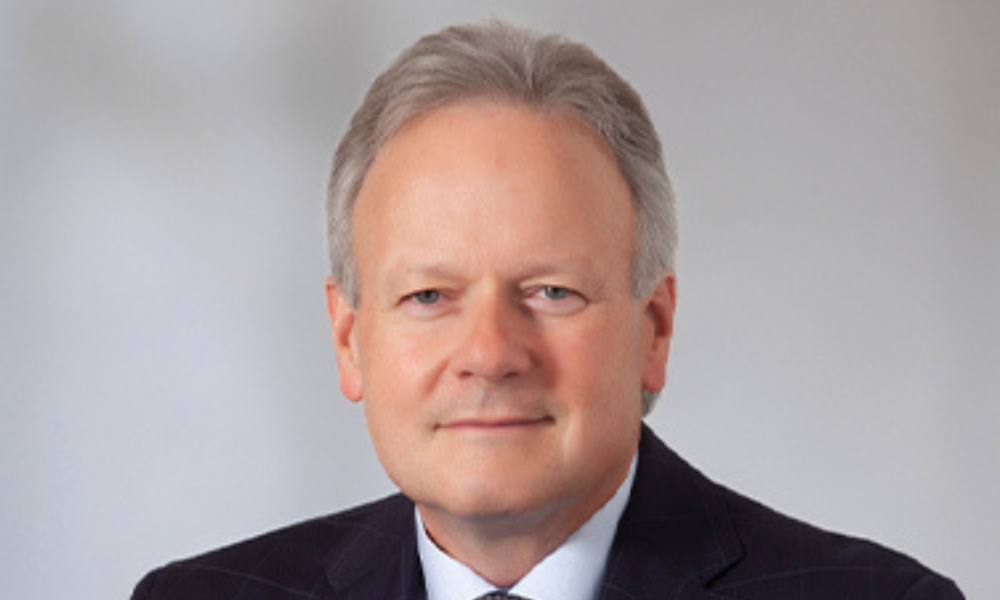Stephen Poloz speaks to WP about his time as governor of the Bank of Canada, his surprising inspirations, and why he wrote his full name on the money

Stephen Poloz went to university to become a doctor, taking economics as “a bit of a lark”. But then he fell in love with it and, after understanding what a powerful instrument the Bank of Canada is, made up his mind in a blink he wanted to be governor. A doctor helps one person at a time, he rationalized, but a central banker can help lots of people all at once.
Almost 40 years later in 2013 – and 35 years after he was a summer student at the bank – Poloz fulfilled his dream and became only the ninth governor in the bank’s history. Misty-eyed might be stretching it but the sense of satisfaction in his voice when looking back over his seven-year tenure is unmistakeable and his description of his time in charge as a “once-in-a-lifetime” experience is no hyperbole.
He says: “Overall, you had this intense feeling of carrying a responsibility, not just for a few people, but basically for everybody; this sense that everything you do matters to so many people. It's a really rich feeling. It's hard to describe. There's not much that can compare.”
He regards his time as governor, and as a macro policy-maker, as a success. When he took over, the economy was still reeling from the global financial crisis and then in 2014 oil prices collapsed. Both times the bank worked to get things back on track to the point where, six months before COVID hit, inflation was at 2% and unemployment was at a 40-year low. The lesson, he says, is that the healthier the economy, the more resilient it will be in the event of a shock.
“What we’ve seen over the past few years is the economy has adapted extraordinarily well and outperformed all the forecasts by the economics community, and outperformed what was laid out in budgets by governments. The main lesson is it’s always worth investing in getting the economy back to where it belongs, because that gets it set up for whatever might come along [next].”
Personal achievements
Perhaps surprisingly, though, the highlights of Poloz’s reign are more personal. Getting his signature on the money was symbolic of an ambition achieved. And while it’s usual for the governor to sign only their initials, Poloz spelled out his full name so both Stephen, his mother’s family name, and Poloz, his father’s, were in full view.
He is also proud of getting the first Canadian woman “on the money” when Agnes MacPhail, the first female parliamentarian, featured on a commemorative bank note. He views this as a “huge accomplishment”, while under his leadership, the Bank of Canada also appointed its first women senior deputy governor in Carolyn Wilkins.
Poloz’s leadership style has been influenced by many people over the years, but it’s surprising to learn that his primary inspirations are fictional - Jean-Luc Picard, captain of the starship Enterprise in Star Trek, and Jed Bartlett, President of the United States in the West Wing. It’s a topic he delves into in his book, The Next Age of Uncertainty: How the World can Adapt to a Riskier Future, which came out in February of this year.
It explores how these two characters represent the core of leadership: understanding yourself, your own values, and finding ways to communicate them. With that philosophy in mind, he made a conscious decision as governor to foster a more collaborative environment. It’s what Bartlett and Picard’s storylines espouse and Poloz remains in awe of the two shows’ leadership writing. He believes he took the essence of these two characters into the bank.
“My willingness to be a team member, as opposed to the boss, made [being governor] a very enjoyable experience,” he says. “I like to think I left some people behind that are very, very capable because they had a lot of first-hand experience in the deep end of the pool, when they weren't being told what to do all the time.”
Moving into the age of uncertainty
It is hoped this next generation of leaders are equipped to deal with a future Poloz believes will feature even more volatility. Short-termism, he stresses, is guaranteed to fail. Instead, financial advisors, governments and consumers will all need to invest more in resilience buffers, which he calls “investments in nimbleness”, allowing you to react quickly but in the context of a longer-term view.
What has undoubtedly been hard to navigate in both the short- and long-term in recent months has been Russia’s invasion of Ukraine. For Poloz, it’s personal. His grandfather and his brother came to Canada from Ukraine (a third brother stayed behind) by mailing their shared passport back after the first person had arrived. The former governor admits it’s hard to find words to describe the human devastation but said political isolationism is a growing concern. The likes of Russia, China and Brazil will only add to the potential for geopolitical risks as the world deglobalizes to some degree; another worry line in Poloz’s “age of uncertainty”.
On a personal level, however, he is enjoying a new level of variety to his working life. As well as penning his book, he was appointed to the board at Enbridge, a multi-national pipeline company headquartered in Calgary, and CGI, a provider of I.T. services. He also joined the Toronto-based law firm Osler, Hoskin & Harcourt as a special advisor. It’s work he clearly enjoys but there remains a tinge of nostalgia for the days when he lived out his dream as governor, pushing himself that extra mile to help lots of people all at once, rather than just one person at a time.



